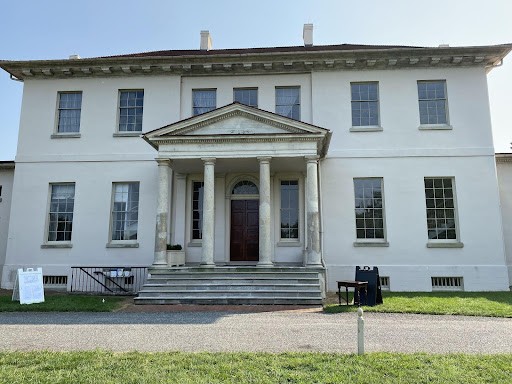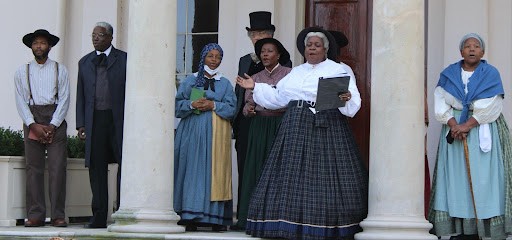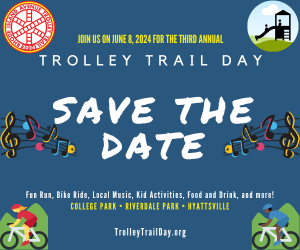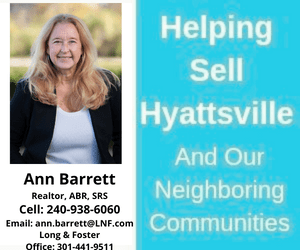By Torrence Banks
Prince George’s County has made it its duty to highlight the stories of the slaves who worked and lived on various antebellum sites through their fourth annual, two-day Echoes of the Enslaved event.

Dozens of Maryland residents from across the state gathered at Riversdale House Museum for this year’s Sept. 17 celebration intended to honor the lives of enslaved ancestors and highlight the legacy of slavery in Prince George’s County.
The event was hosted by the Prince George’s County Office of Archaeology and the nonprofit The Slave Dwelling Project. Joseph McGill Jr., founder of The Slave Dwelling Project, served as the moderator for the Sept. 16 Descendants Panel Discussion.
Maya Davis, the executive director of Riversdale House Museum, said that the Echoes of the Enslaved celebration event used commemoratory performances, healthy cooking demonstrations and fitness demonstrations to examine black health and wellness and honor the lives of enslaved ancestors.
With September being International Underground Railroad Month and 2022 marked as The Year of Harriet Tubman, Davis said that the timing of the celebration is significant. Ernestine (Tina) Martin Wyatt, who is a descendant of Tubman, was one of the panelists during Friday’s discussion.
Before the panel discussion, Rev. Dr. Tamara E. Wilson, chair of the Maryland Commission on African American History and Culture, read the names of more than 50 people who were enslaved at Riversdale House. Wilson said that their legacy, work and faith must be used to inspire those who wish to see change.
“For this is what will change hearts, will change minds, laws and policies that bring justice and reparations to black people in the state and country,” Wilson said.
After moderating Friday’s discussion, McGill did not leave the Riversdale House campus. Instead, he opted to spend the night sleeping in a room inside the mansion.
“I slept right there in that spot,” McGill said during a discussion with Davis inside the museum on Saturday. “Looking at that ceiling. Looking at these proprietors, and thinking about them historically and knowing that the thoughts in their head were not about giving us an equal billing.”
McGill later said when talking about his experience: “You think about the fact that these folks may have had some privileges above and beyond the field hands that were out there, but was that a privilege that was worth it? You’re being more scrutinized by the enslavers. When people travel, they stayed a while, so your work is being compounded that much.

Along with this discussion, there were several other vibrant events at the celebration. Three cooking demonstrations drew large crowds under a shaded green tent while two chefs cooked and talked to the audience. Celebration attendees got the chance to taste a healthy spin on fried chicken, greens and shrimp and grits.

“The food was good and the chefs were young and they were knowledgeable,” Julia Goodman Gafney, a Prince George’s County teacher said. “It was a good exchange. It was nice.”
Attendees also had the chance to participate in an archaeological dig on the Riversdale campus. The archeology team was called to Riversdale Park because the city is planning to add compost bins.
Before construction on historic sites like the museum, park archaeologists are called to make sure that the city’s construction doesn’t impact anything under the surface. If something is found in a particular spot, the team will tell the city to adjust their placement of the bins.
“But archaeology is very cooperative,” Stephanie Sperling, assistant archaeology manager with Maryland-National Capital Park and Planning Commission said. “And this [Echoes of the Enslaved] is sort of emblematic of the cooperative nature of archaeology just in general because we work with historians, genealogists, descendants, the public, soil scientists, geologists, so on and so forth.”

Quilts have long been used for storytelling and documenting life experiences. A station was set up where participants could draw and create images to express their identity and how they interact with the world.
“So, the whole idea was to connect it back to identity, and how people’s race, physical characteristics, heritage, etc. impact that,” Spencer Woehrle, education coordinator at the Riversdale House Museum said. “By getting people to express their identity and what their identity means to them onto a piece of fabric, these fabric pieces could then be sewn together to create a mosaic of the ‘identity’ of the people in and around the Riverdale Park community.”
Another event that drew just about everyone on the lawn to the steps of the museum was the performance by the Jubilee Voices. The crowd clapped, sang and interacted with the singers throughout the show.
When asked about his favorite part of the performance, retired firefighter and Maryland resident Steven Kelly laughed: “Oh, Jubilee Voices performance, the interaction with the audience and the fact that some of them wanted me to sing with them because they were surprised at my voice.”

McGill believes that having descendants of slaves speak at different antebellum sites is important because they help enhance the stories being told at these places. With the increase in attempts to pass legislation that filters history, he said, these events are more important now than ever.
“We’re not going back to that place where I was when I was being educated,” McGill said. “Being lied to about happy slaves and benevolent slave owners. That’s not a good place to be.”







